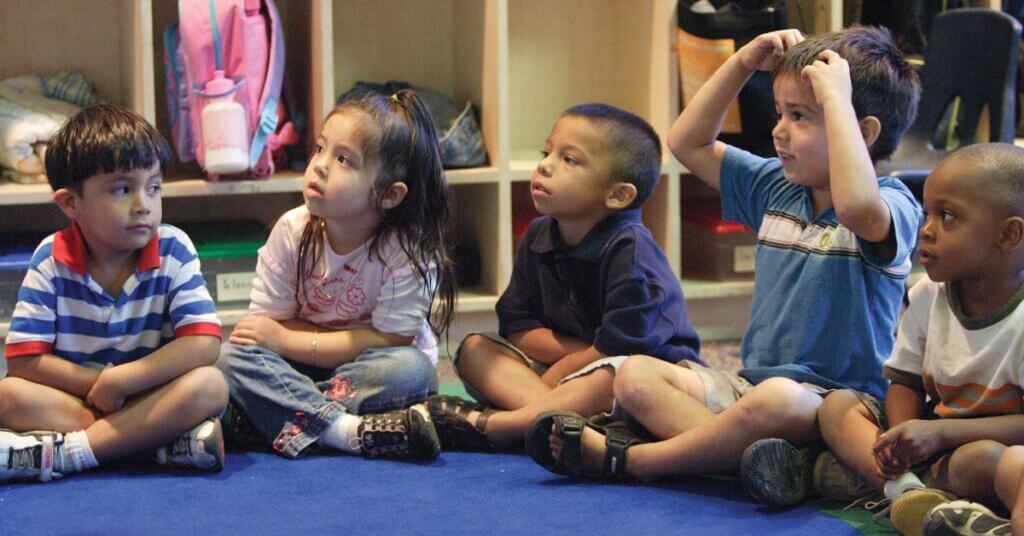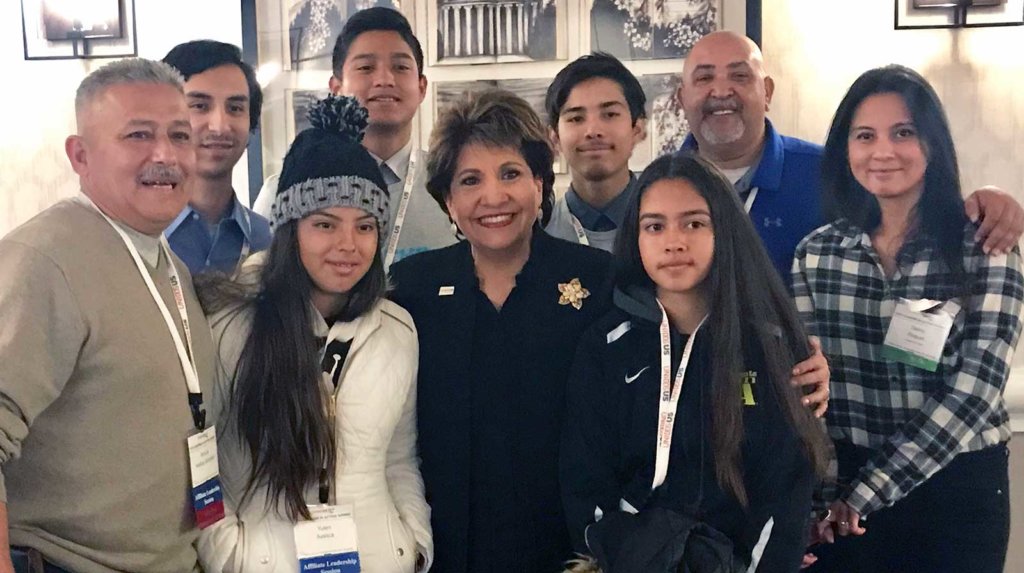From the classroom to the courtroom and back
UnidosUS Senior Education Policy Advisor Lorén Trull shares what propels her work to provide educational opportunities for all children.
By Jennifer Wennig for UnidosUS
Lorén Trull, Senior Education Policy Advisor for UnidosUS, is the embodiment of the transformative power of education. Lorén is a first-generation college student who grew up in a single-parent, low-income home. Determined to create a better future for herself, Lorén was a dedicated student and set her sights high.
Keep up with the latest from UnidosUS
Sign up for the weekly UnidosUS Action Network newsletter delivered every Thursday.
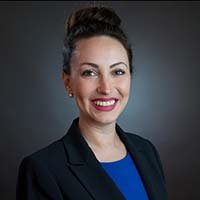
After completing her undergraduate studies (earning two bachelor’s degrees in Hispanic studies and sociology), Lorén earned a Juris Doctor from the University of North Carolina School of Law in Chapel Hill and a doctoral degree in public policy from the University of North Carolina at Charlotte.
“I’m well aware of what my statistical chances of going to college, earning a law degree, and earning a PhD were,” Lorén says. “Let’s just say the odds were against me and I don’t think that should be the case for any student.”
It was a combination of that desire to see all children provided with the education they deserve and her experiences as a criminal defense attorney earlier in her career that propelled Lorén’s work in education policy. During her time as a defense attorney, she represented juvenile clients accused of crimes. And, while the work was “incredibly meaningful”, Lorén didn’t want to always be on “the defense for opportunity.”
“I wanted to get on the front end of the fight and try to provide educational opportunities for all kids so that fewer of them would be standing in that courtroom,” Lorén says.
After working for the Southern Regional Education Board and in the Education Branch of the White House Office of Management and Budget, Lorén joined UnidosUS in 2017.
Broadly speaking, Lorén works to advance state and federal education policy by conducting analysis on and advocating for successful policies and practices in educating Latino students.
Supporting English Learners (ELs)
Fifty-five percent of classrooms in the United States have at least one English Learner (EL), yet 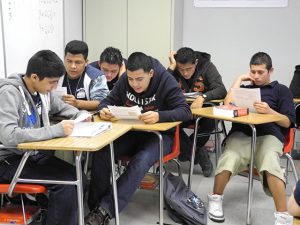 less than a third of those teachers have had even moderate EL training. Lorén believes all states need to better invest in preparing their educators to help ELs succeed in part by providing additional resources to support ELs attain English Language Proficiency and proficiency in the content areas such as math, reading, and science.
less than a third of those teachers have had even moderate EL training. Lorén believes all states need to better invest in preparing their educators to help ELs succeed in part by providing additional resources to support ELs attain English Language Proficiency and proficiency in the content areas such as math, reading, and science.
Unfortunately, while Lorén believes there may be some school districts that “adequately” serve ELs, nationwide the gaps are unacceptable. “Every state has something they could improve on and we are going to continue to try and move the needle at the local, state, and federal level.”
Assessing the Every Student Succeeds Act (ESSA)
In 2015, the Every Student Succeeds Act (ESSA) was signed into law (replacing No Child Left Behind). ESSA is intended to ensure K-12 schools provide a quality education for all students. While ESSA is a federal law, it gives states the authority to implement their education plans and determine how schools account for achievement within the framework provided by ESSA.
UnidosUS worked with partners to advocate on Capitol Hill on behalf of Latino and English Learners to make sure ESSA would hold states accountable for these students’ performances.

Even with the guidelines set forth under ESSA, Lorén contends that the greatest threat to our education system is that historically disadvantaged students are still not being properly supported or provided for.
One in four K-12 students in the United States is Latino, and Lorén and UnidosUS are adamant that the government and the education system “cannot keep leaving them behind.”
“Making sure all students succeed is not only the right thing to do, it’s what is required to prepare our future workers and leaders,” Lorén declares.
Lorén’s insight on the best path forward for ESSA:
- ESSA is a civil rights law, meaning best practices for states begin by honoring the intent and purpose of the law by creating systems and supports built upon equity.
- Focus on accountability and funding systems that take into account subgroups of students in a meaningful way—in a way that will provide supports for schools when they are failing Latino students, ELs, or other subgroups of students.
- To achieve equity for all students, there must be stricter oversight from the U.S. Department of Education. While the review and feedback process has been more than the rubber-stamp process anticipated, the final approval process doesn’t reflect the same level of rigor as the review process.
Lorén states that even though 27 states’ ESSA plans have been approved by the Department of Education, many continue to “miss the mark more often than not,” adding, “It’s a real missed opportunity, many states did not take equity into account in the way needed to see real results for our students.”
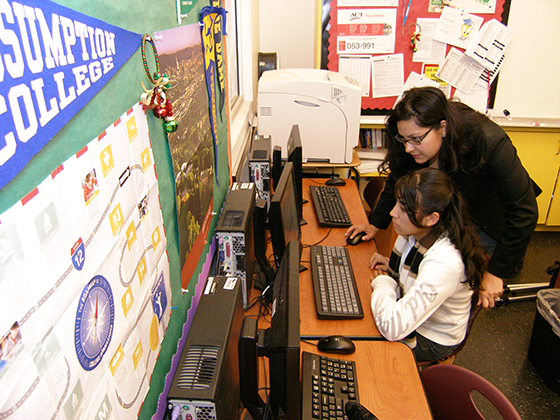
UnidosUS on the front lines of education policy
As an expert in K-12 education policy, ELs and the education of historically underserved students, Lorén is leading UnidosUS’s efforts to guarantee that Latino students have access to post-secondary education opportunities and to ensure they are provided the necessary resources and supports to be successful at every stage of their educational pursuits.
UnidosUS prioritizes the following principles in its education policy work:
- College affordability
- Promoting financial access
- Providing education and institutional supports for students to make informed decisions
- Promoting and strengthening institutional accountability
- Increasing college retention and completion
Lorén explains that this year UnidosUS will continue to work with Congress on reauthorizing the Higher Education Act (HEA), making certain it retains its civil rights roots and that lawmakers effectively address equity.
In addition to advocating for federal legislation that positively impacts students and post-secondary education, Lorén explains that UnidosUS will “continue to monitor and advocate for policies in each state that can improve and promote our priorities for students across the nation.”
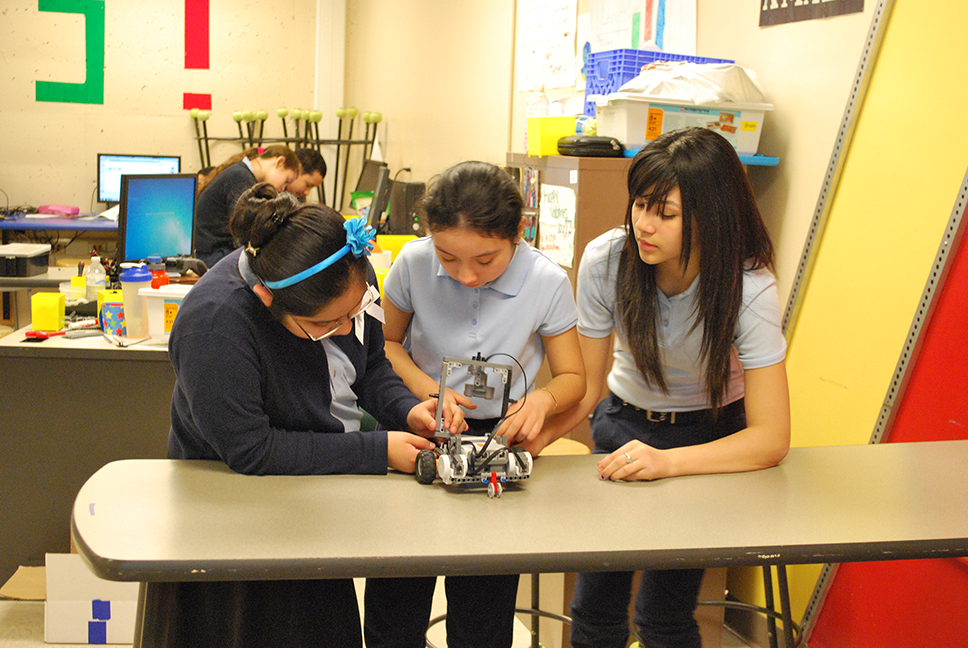
Today’s political climate harms students
Particularly in today’s political climate, Lorén asserts that instability poses a significant risk to Latino children finding success in school.
“Kids need stability to learn and this administration has provided the exact opposite of that for our children.”
That instability spans many issues that adversely affect Latino students, Lorén says, including:
- The instability in funding and resources to best serve kids in school.
- The instability in the safety of students and their families because of the attack on Latino families by ICE and the Trump administration.
- The instability around programs that support students in their daily lives, such as CHIP and Medicaid.
Words to live by
Reflecting upon her roots, educational achievements and career path, Lorén knows that having the opportunity to achieve her goals changed not only her life, but her family’s as well.
“I want every child to have that opportunity no matter where they come from, how much money their parents make or what color their skin is.”
